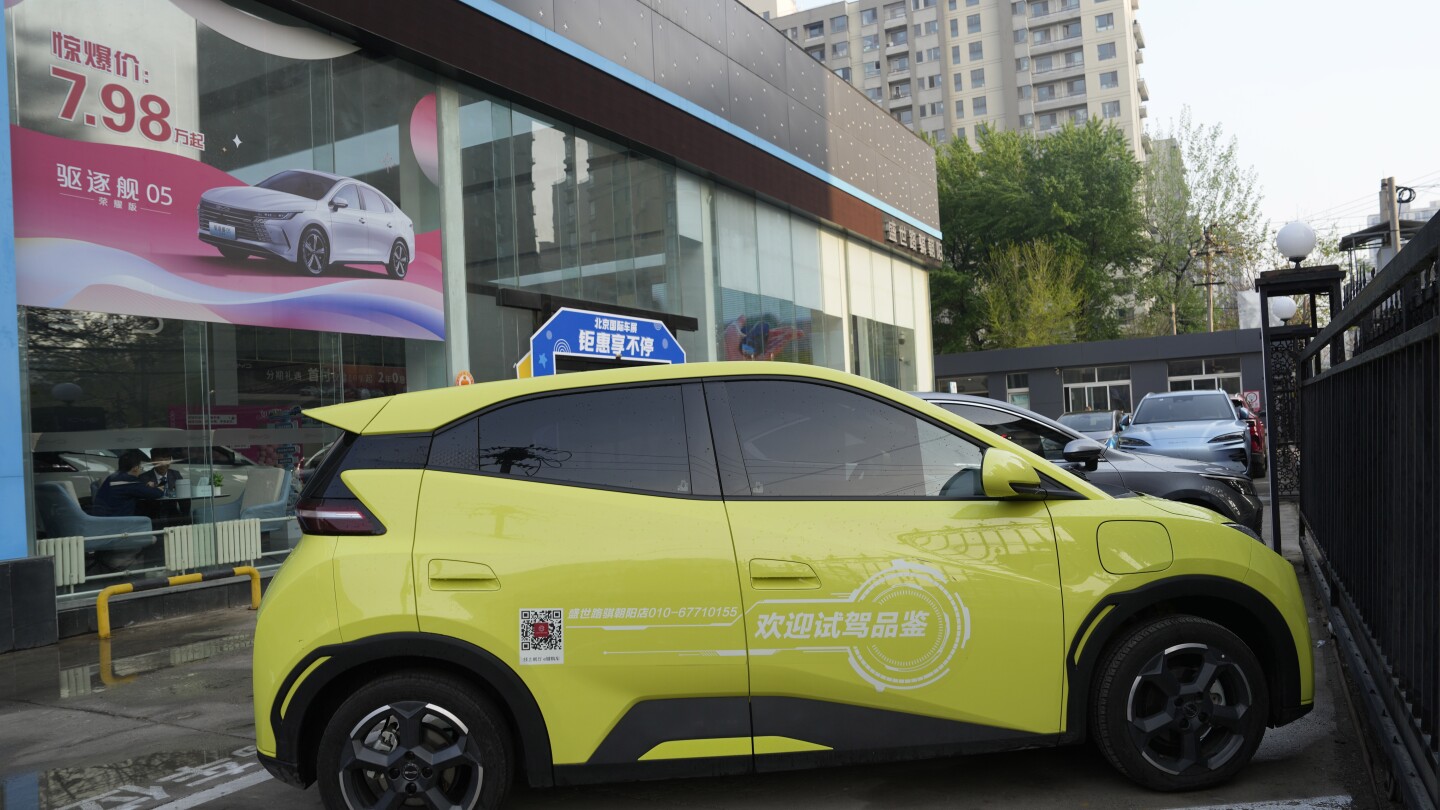A tiny, low-priced electric car called the Seagull has American automakers and politicians trembling.
The car, launched last year by Chinese automaker BYD, sells for around $12,000 in China, but drives well and is put together with craftsmanship that rivals U.S.-made electric vehicles that cost three times as much. A shorter-range version costs under $10,000.
Tariffs on imported Chinese vehicles probably will keep the Seagull away from America’s shores for now, and it likely would sell for more than 12 grand if imported.
But the rapid emergence of low-priced EVs from China could shake up the global auto industry in ways not seen since Japanese makers exploded on the scene during the oil crises of the 1970s. BYD, which stands for “Build Your Dreams,” could be a nightmare for the U.S. auto industry.
“Any car company that’s not paying attention to them as a competitor is going to be lost when they hit their market,” said Sam Fiorani, a vice president at AutoForecast Solutions near Philadelphia. “BYD’s entry into the U.S. market isn’t an if. It’s a when.”



Did you have the chip issue in the volt a few years ago? Man that was a pain, lost mine for months waiting.
I’m currently buying ford mavericks for my fleet, and really wish they’d get off their ass and make it a plug in hybrid. We need more low to mid vehicles in the US or china will take the market even at 100% tariff markup. That’s embarrassing, but the outcome of them all pushing to “Yank tanks” for profit.
I didn’t have the chip issue, but I know it was bad and covid supply chain issues turned it into an absolute shit show for those who did. So far it has been an absolute dream. I’m just too old and have bad joints to easily get in and out. I used to commute over 200 miles a day in it, so I got every watt out of that battery every day. I still push that battery to its limits at least once a week. Anyone who thinks 30 miles is plenty is crazy - especially in northern winters where range is cut in half.